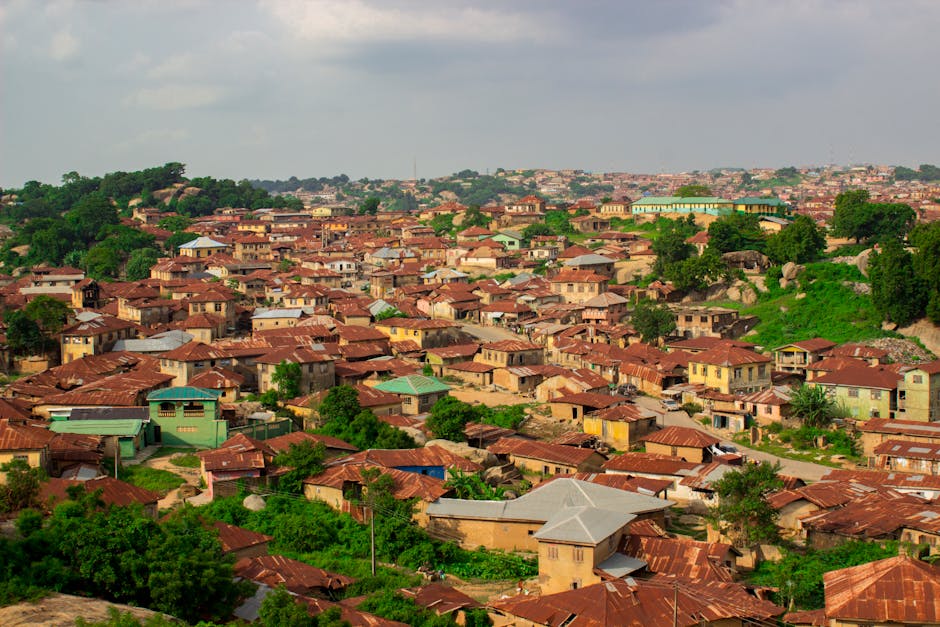


 Nigeria
Nigeria
Nigeria is an exciting and vibrant travel destination in West Africa. With its diverse cultures, stunning landscapes, and rich history, Nigeria offers something for everyone. From the bustling cities of Lagos and Abuja to the beautiful beaches of Calabar and Port Harcourt, there is plenty to explore. Nature lovers will be delighted by the country's many national parks, including Yankari National Park and Cross River National Park. Adventure seekers can take part in activities such as hiking, mountain biking, and bird watching. Cultural attractions include traditional festivals, markets, museums, and monuments. With its friendly people, delicious cuisine, and unique experiences, Nigeria is a great place to visit.
Activities: Canoeing, Rafting, Snorkeling, Hiking, Camping, Rock Climbing, Safari
Landscapes: Islands, Beaches, Forests, Woodlands, Mountains, Rivers, Lakes, Deserts, Canyons
Topics: Nature, Wildlife, Food, Festivals, Adventure
Is Nigeria expensive?
Nigeria currency
₦Nigerian naira (NGN)
Weather in Nigeria
The weather in Nigeria is generally hot and humid throughout the year. The average temperature is around 27°C (80°F). The rainy season runs from April to October, with the heaviest rainfall occurring in July and August. During this time, there are frequent thunderstorms and flooding in some areas. The dry season runs from November to March, with cooler temperatures and less rain.
Traveling Nigeria
Air Travel
The most common way to get around Nigeria is by air travel. There are several domestic airlines that offer flights between major cities in the country.
FlightsBus Travel
Buses are a popular way to get around Nigeria, with many companies offering services between major cities and towns.
Train Travel
Train travel is available in Nigeria, with services connecting major cities such as Lagos, Abuja, and Kano.
Car Rental
Car rental is available in Nigeria, with companies offering vehicles for hire at airports and other locations.
Car rentalTaxi Services
Taxis are widely available in Nigeria, with drivers offering services between cities and towns.
Is Nigeria safe?
Crime
In Nigeria, travelers should be aware of the risk of crime. Common crimes include pickpocketing, purse snatching, armed robbery, carjacking, and kidnapping. Violent crime is also a concern in some areas. Travelers should take precautions to protect themselves and their belongings, such as avoiding walking alone at night and carrying only small amounts of cash. It is also important to be aware of your surroundings and avoid displaying expensive items or large amounts of cash.
Travel advisory
3.8/5Nigeria has a current risk level of 3.8 (out of 5). We advise: Please reconsider your need to travel to Nigeria.Last updated: Thu Mar 23 2023
Health
Malaria
Malaria is a serious risk in Nigeria and travelers should take precautions to avoid mosquito bites. This includes using insect repellent, wearing long-sleeved clothing, and sleeping under a mosquito net.
Insect repellentHepatitis A
Hepatitis A is a common risk in Nigeria and travelers should consider getting vaccinated before traveling.
Food and Water Safety
Travelers should be aware of the risk of food-borne illnesses in Nigeria. It is important to only eat food that has been cooked thoroughly and to avoid drinking tap water.
Air Quality
Air pollution is a major problem in Nigeria, particularly in urban areas. Travelers should take precautions to protect themselves from air pollution, such as wearing a face mask when outdoors.
Nigeria customs and etiquette
Be Respectful
Be mindful of local customs and traditions, dress modestly, and be respectful when interacting with locals.
Be Aware of Local Laws
Familiarize yourself with the laws of Nigeria before traveling. Be aware that certain activities, such as taking photographs of military installations or government buildings, are prohibited.
Be Courteous
When visiting religious sites, be courteous and dress appropriately. Avoid loud conversations and disruptive behavior.
Be Mindful of Your Belongings
Be aware of your surroundings at all times and keep your belongings secure. Be cautious when using ATMs or exchanging money.
TP
Copyright 2023